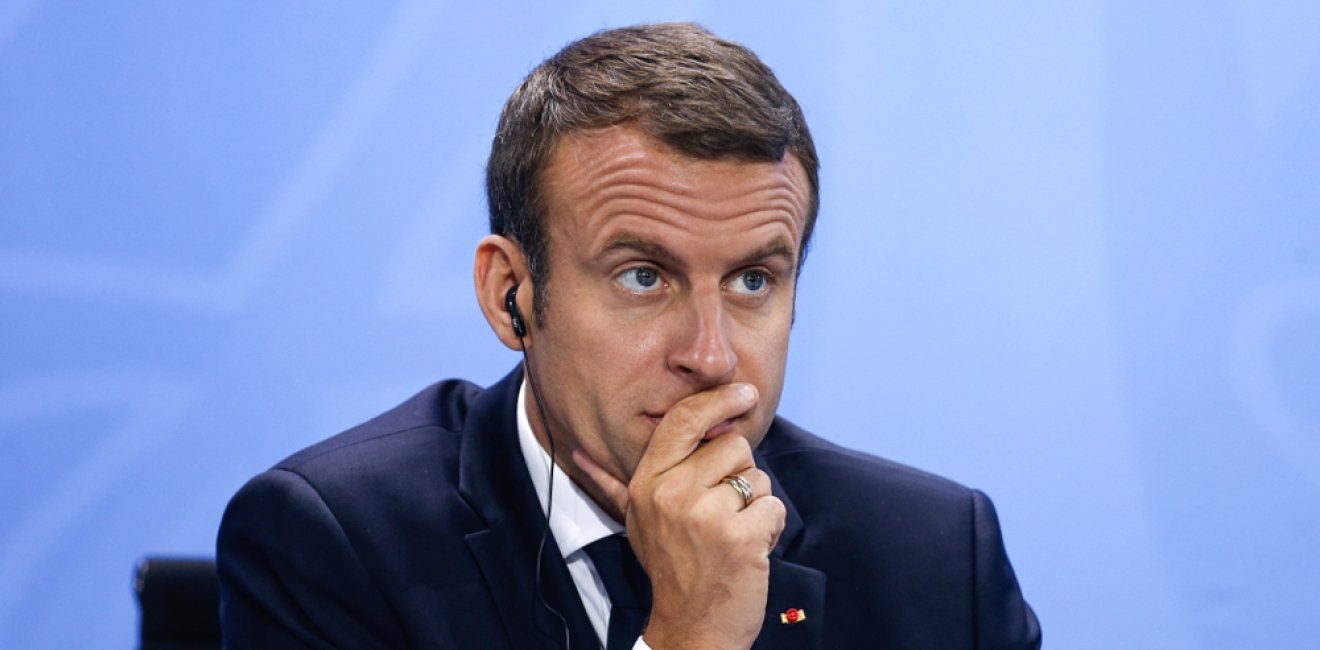A weakened President, a diminished France. Such is the situation in the beginning of 2024. Will Macron be able to survive three more years? And how effectively can he govern? That is not only an important question for France, but for Europe as well.
The Fifth Republic is premised on a powerful presidency backed by a parliamentary majority. Under those conditions, France can punch above its weight in European politics. If the President enjoys a good relationship with an effective German Chancellor, the Franco-German tandem can lead Europe, even a Europe of 27. But today, France's president is severely weakened and there is reason to fear his successor could be Marine Le Pen.
Originally, the presidential term was seven years, and the parliamentary five. The curse of the old system was “cohabitation.” When a president’s popularity did not extend to the end of his term, the opposition might win legislative elections and impose a Prime Minister. For two years, rival President and Prime Minister were yoked together. That problem was supposedly solved by shortening the presidential term to five years. A newly elected president would dissolve parliament and a new parliament dominated by his party would ride in on his coat tails.
In 2022, however, Macron was reelected not so much because of what he was but because of who his opponents were. Unable to inspire voters in the parliamentary election with a great project for the future, Macron’s party did not receive a working majority. Flanked by a left under the sway of a demagogic Mélenchon and a right dominated by Le Pen’s Rassemblement National (RN), its only possible partner was the small Republican group. But they had moved to the right as well and were not anxious to work with Macron on his own terms. So the government passed the budget by use of Article 49.3 of the Constitution which enabled it to circumvent the National Assembly and did the same for the unpopular reform of retirement, which raised the age of retirement from 62 to 64.
Unwilling to employ 49.3 again, but anxious to pass a migration bill, the Borne government sought but failed to find a majority in the Assembly for a piece of “balanced” legislation. In the end, it made use of another constitutional contrivance to pass a bill that was not balanced at all but accepted the terms imposed by the Republicans in the Senate. The result was legislation which obtained the votes of RN but which offended two dozen members of the left wing of Marcon’s own party so much, that they refused to vote for it. Health minister Aurélien Rousseau resigned in protest. As a result, Macron’s party is now divided and perceived more as right-wing than centrist—and so is Macron.
So where are we now? A government that has sacrificed its allegedly middle of the road stance in order to gain passage of a bill. A President who has already faced the uprising of the gilet jaunes, mass resistance to his retirement bill and rioting in the ghettos. Macron lacks a parliamentary majority but does not dare employ his most powerful weapon, the ability to dissolve the National Assembly, because the result would most certainly be an even more ungovernable parliament. Instead, he replaced the Elisabeth Borne with Gabriel Attal. Borne became a scapegoat. But it is unlikely that a new government will make much difference.

Elections for the European Parliament will be held in June 2024, which take place by proportional representation, and give voters a chance to vote their heart—or more likely, their spleen. The biggest winner is likely to be Le Pen’s RN, that could weaken France’s leadership in Europe for the next three years. And if that is the case, it could portend Le Pen’s victory in the next presidential elections in 2027.
At the same time the German coalition is splintering, polls show a rising AFD and Chancellor Scholz’ government will be tested by the same European election—most likely emerging weakened. At a time of two serious wars and a divided US, about to be consumed by election fever, a weakened France and a weakened Germany, both pounded by an extremist tide, do not bode well for European democracy.
Author

Author "Jews, Muslims, and the French Republic" (Cambria: 2023)

Global Europe Program
The Global Europe Program is focused on Europe’s capabilities, and how it engages on critical global issues. We investigate European approaches to critical global issues. We examine Europe’s relations with Russia and Eurasia, China and the Indo-Pacific, the Middle East and Africa. Our initiatives include “Ukraine in Europe”—an examination of what it will take to make Ukraine’s European future a reality. But we also examine the role of NATO, the European Union and the OSCE, Europe’s energy security, transatlantic trade disputes, and challenges to democracy. The Global Europe Program’s staff, scholars-in-residence, and Global Fellows participate in seminars, policy study groups, and international conferences to provide analytical recommendations to policy makers and the media. Read more

Explore More
Browse Insights & Analysis
Greenland’s New Governing Coalition Signals Consensus

The Future of France's Far-Right Party

Ukrainian Issue in Polish Elections

